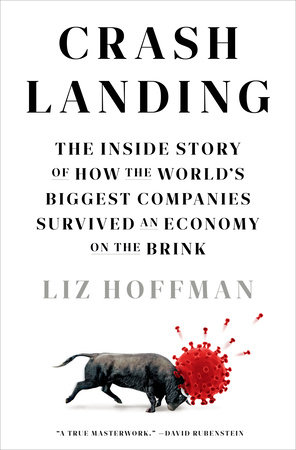Quick Summary
One Sentence Summary
“Shop Class as Soulcraft” by Matthew B. Crawford explores the intrinsic value and satisfaction found in manual labor, challenging modern perceptions of intelligence and success.
Big Idea
The book advocates for the reevaluation of skilled trades, emphasizing the intellectual rigor, creativity, and ethical importance of manual work, and questioning the overvaluation of white-collar professions.
Five Key Ideas
- Respect for Manual Work: Crawford argues that manual trades offer a sense of fulfillment and connection to the tangible world, often missing in desk jobs.
- Critique of Modern Work Culture: The book scrutinizes the knowledge economy, highlighting how it can lead to disengagement and lack of purpose.
- Intellectualism in Craftsmanship: It challenges the dichotomy between intellectual and manual work, showcasing the deep thinking and problem-solving involved in trades.
- Autonomy and Mastery: Crawford emphasizes the autonomy and sense of mastery that come with hands-on work, advocating for self-reliance and skill development.
- Ethical Workmanship: The book promotes the ethics of craftsmanship, urging a commitment to quality and integrity in work.
Actionable Advice
Consider exploring manual skills or hobbies, not just for practical benefits but for intellectual and emotional fulfillment. Question the societal norms that undervalue manual labor and reflect on how hands-on work can bring a sense of accomplishment.
About the Author
Matthew B. Crawford is a philosopher and mechanic. He holds a Ph.D. in political philosophy and runs a motorcycle repair shop. His unique background brings a thoughtful perspective to the value of manual work.
Read Next
For readers intrigued by the themes in “Shop Class as Soulcraft,” consider diving into “Zen and the Art of Motorcycle Maintenance” by Robert M. Pirsig for a philosophical journey, or “The Case for Working with Your Hands: Or Why Office Work is Bad for Us and Fixing Things Feels Good” by Richard Sennett for a deeper exploration of craftsmanship and manual labor.
In Depth
Respect for Manual Work
Manual labor, often sidelined in today’s tech-driven world, holds intrinsic value and satisfaction. Matthew B. Crawford, in “Shop Class as Soulcraft,” passionately argues for its recognition and appreciation. His central thesis is that working with one’s hands offers a tangible sense of fulfillment, grounding people in the physical world in a way that many white-collar jobs don’t.
Crawford stresses that manual work isn’t just about fixing things. It’s a form of engagement with the world that requires critical thinking, creativity, and, most importantly, a physical connection with the work. This contrasts sharply with many modern jobs where the product of one’s labor is intangible or distant.
He provides a detailed example of his experience working on an old motorcycle. This task wasn’t just about turning wrenches. It involved diagnosing problems, understanding complex systems, and finding creative solutions. It was intellectual work disguised as manual labor. Crawford writes:
“The satisfactions of manifesting oneself concretely in the world through manual competence have been known to make a man quiet and easy.”
This quote encapsulates the essence of his argument. Manual work offers a unique form of satisfaction, a blend of physical exertion and intellectual challenge that leads to a sense of peace and accomplishment.
Crawford also delves into how society often undervalues manual skills. He argues that this isn’t just a matter of economics or job markets, but a cultural bias that associates intelligence with white-collar professions. In doing so, we overlook the intellectual rigor involved in manual trades. An electrician or carpenter doesn’t just follow a set of instructions; they solve problems, often complex and unforeseen, requiring a deep understanding of their craft.
Moreover, manual work, according to Crawford, fosters a sense of independence and confidence. There’s a directness to it; you can see and feel the results of your efforts. This tangibility is something many people crave, even if they don’t realize it. It provides a sense of control and self-reliance that’s hard to find in an office job.
In promoting respect for manual work, Crawford isn’t just advocating for a change in job preferences. He’s calling for a cultural shift in how we perceive intelligence, success, and fulfillment. His message is clear: manual labor isn’t a fallback option but a worthy pursuit that offers intellectual, emotional, and ethical rewards.
The book makes a compelling case for the value of working with one’s hands, urging readers to rethink their perceptions of manual labor and to appreciate the deep satisfaction it can bring. It’s a call to honor the craftsmen and craftswomen among us, and perhaps, to join their ranks.
Critique of Modern Work Culture
Modern work culture, especially in the knowledge economy, often disconnects people from the fruits of their labor. Crawford, in “Shop Class as Soulcraft,” criticizes this culture for leading to a sense of disengagement and purposelessness. He argues that many white-collar jobs, while revered, can leave individuals feeling detached and unfulfilled.
Crawford uses the example of office work to illustrate his point. He talks about the bureaucratic nature of many corporate jobs, where the outcome of one’s work is abstract or buried in layers of organizational structure. In such environments, workers can feel like cogs in a machine, their tasks seemingly insignificant and their impact unclear. He writes:
“The disappearance of tools from our common education is the first step toward a wider ignorance of the world of artifacts we inhabit.”
This quote highlights the disconnect between modern work and the tangible world. Crawford suggests that when people are removed from the physical act of creating or fixing, they lose an understanding and appreciation of how things work.
He contrasts this with the clarity and directness of manual labor. When you repair a car, build a piece of furniture, or install electrical wiring, the results are immediate and tangible. You know what you’ve accomplished, and you can see the value of your work. This direct feedback loop, according to Crawford, is often missing in modern office jobs.
Furthermore, Crawford discusses how modern work culture can foster a sense of dependency. He argues that reliance on experts and professionals for even minor repairs or tasks leads to a loss of self-reliance and practical knowledge. This dependency, he suggests, is not just a practical issue but a moral one, as it erodes individuals’ sense of agency and competence.
In critiquing modern work culture, Crawford isn’t dismissing the importance or value of white-collar professions. Instead, he’s urging a reevaluation of what we consider meaningful work. He calls for a culture that values hands-on knowledge and the satisfaction that comes from directly engaging with the physical world.
His critique is a call to action. It asks individuals to reflect on their work and consider whether it offers a sense of purpose and connection. It’s an invitation to reassess the balance between physical and intellectual labor in our lives and to recognize the deep fulfillment that can come from working with our hands.
Intellectualism in Craftsmanship
Craftsmanship isn’t just about manual dexterity; it’s a deeply intellectual pursuit. Crawford, in “Shop Class as Soulcraft,” dismantles the false divide between intellectual and manual work. He argues that trades often involve complex problem-solving and creativity, akin to what’s typically labeled as “intellectual” work.
One vivid example Crawford provides is the process of diagnosing and fixing a motorcycle engine. This task isn’t just a matter of following steps. It requires understanding intricate mechanical systems, identifying subtle cues, and applying principles of physics and engineering. This process demands critical thinking and adaptability. Crawford states:
“The mechanic and the doctor, the cook and the mathematician all have something to teach us that we can’t learn in a classroom.”
This quote emphasizes the intellectual nature of manual work. Crawford suggests that real-world problem-solving, as found in trades, offers a form of knowledge and understanding that academic learning alone cannot provide.
He challenges the stereotype that sees manual workers as less thoughtful or intelligent than their white-collar counterparts. Crawford highlights that a skilled tradesperson must continually learn, adapt, and innovate. The work is dynamic, often requiring on-the-spot decision-making and a deep understanding of materials and techniques.
Furthermore, Crawford points out that craftsmanship involves a kind of dialogue with materials and tools. A carpenter, for instance, must understand the properties of different woods, the behavior of tools, and the influence of environmental factors. This knowledge isn’t just theoretical; it’s gained through hands-on experience and a deep engagement with the craft.
Crawford’s discussion on intellectualism in craftsmanship urges us to redefine intelligence. He invites us to see intelligence not just as the ability to manipulate abstract concepts but also as the capacity to engage deeply with the physical world and solve practical problems.
This key idea is a powerful reminder that intellect manifests in diverse forms and that practical, hands-on work is as intellectually demanding as any traditional academic pursuit. Crawford’s perspective encourages respect for the intellectual aspects of manual labor and an appreciation for the diverse ways in which human intelligence can be expressed and applied.
Autonomy and Mastery
Crawford emphasizes the profound sense of autonomy and mastery that manual work can provide. He argues that engaging in hands-on tasks offers a unique form of independence and self-reliance, a stark contrast to many modern jobs where individuals often feel like small cogs in large machines.
A compelling example from the book is Crawford’s own journey as a motorcycle mechanic. He describes the process of starting his own repair shop. This venture wasn’t just about fixing bikes; it was about taking control of his work environment and decisions. Crawford writes:
“The satisfactions of manifesting oneself concretely in the world through manual competence have been known to make a man quiet and easy.”
This quote speaks to the sense of calm and confidence that comes from mastery of a skill. It’s about having the competence to tackle problems and the autonomy to make decisions.
Crawford contrasts this with the experience of many office workers who often follow predetermined processes or rely on layers of management for decisions. In manual work, especially when one is proficient or owns their trade, decisions and actions are more direct and personal. The sense of ownership over the work is stronger.
Moreover, Crawford discusses how manual work demands a continuous learning process. Achieving mastery in a trade isn’t a one-time event; it’s an ongoing journey of skill development and problem-solving. This pursuit of mastery provides a sense of progress and personal growth that can be deeply fulfilling.
Crawford’s discussion of autonomy and mastery is not just about career choices. It’s a broader commentary on how work shapes our sense of self and our relationship with the world. He suggests that hands-on work, with its direct feedback and tangible results, can lead to a deeper understanding of one’s capabilities and a stronger sense of self-efficacy.
This key idea resonates with a desire for meaningful and engaging work. It encourages a reevaluation of what it means to be in control of one’s labor and to find satisfaction in continual learning and mastery. Crawford’s perspective invites us to consider how the pursuit of autonomy and mastery in our work, whether manual or intellectual, can lead to a more fulfilling and self-directed life.
Ethical Workmanship
Crawford delves into the ethics of craftsmanship, emphasizing the importance of quality and integrity in work. He argues that manual labor, particularly skilled trades, inherently promotes ethical values by requiring a commitment to doing things well.
An illustrative example from the book is Crawford’s experience with a client’s motorcycle. The bike had been previously serviced by someone who took shortcuts, resulting in further issues. Crawford reflects on the responsibility he feels as a mechanic to not only fix the immediate problem but also to ensure the overall integrity of the machine. He writes:
“The craftsman’s habitual deference to the standards and rules of his craft is a kind of moral realism, a recognition that things like motorcycles and reality in general are independent of one’s wishes and desires.”
This quote highlights the ethical dimension of craftsmanship. It’s about respecting the inherent nature of the material or task at hand and not cutting corners for expedience.
Crawford explains that in manual work, the consequences of shoddy workmanship are often immediate and tangible. A poorly repaired engine can fail; a badly built chair can break. This direct feedback loop reinforces the importance of quality and attention to detail. Craftsmanship, in this sense, is inherently ethical because it demands a certain level of respect for the work and its end users.
Moreover, Crawford discusses how this ethical workmanship extends beyond the task itself to the larger community. A craftsman not only contributes to the quality of the physical objects in our world but also sets a standard of excellence and care that can inspire others. It’s about building and maintaining trust, both in the specific trade and in the broader social fabric.
Crawford’s focus on ethical workmanship is not just about pride in one’s work; it’s a commentary on how work shapes character and community. He suggests that by engaging deeply and ethically with our work, we not only create better products or services but also cultivate personal virtues and contribute to the common good.
This key idea challenges us to consider the ethical implications of our work, regardless of the field. It invites us to reflect on how we can bring a sense of craftsmanship to our tasks, valuing quality, integrity, and the impact of our work on the world around us. Crawford’s perspective encourages a broader view of work as a moral endeavor, where the pursuit of excellence and ethical standards is integral to personal fulfillment and societal well-being.
Actionable Advice
- Explore Manual Hobbies: Start a hands-on hobby like woodworking, gardening, or car repair. It’s a great way to understand the satisfaction of manual work.
- Learn a New Skill: Take a class in a trade skill such as carpentry, plumbing, or electrical work. Community colleges or local workshops often offer these.
- Fix Something: Next time something breaks, try fixing it yourself before calling a professional. Use online tutorials for guidance.
- Visit Craftsmen: Spend time with local craftsmen or artisans. Understand their work and the passion behind it.
- Reflect on Your Work: Consider if your current job provides a sense of accomplishment and connection. If not, think about how you can incorporate more tangible tasks into your life.
- Teach a Skill: If you have a manual skill, teach it to others. Sharing knowledge can reinforce your understanding and appreciation of the craft.
- Value Craftsmanship: Whenever you purchase something, consider the craftsmanship behind it. Opt for items that are well-made and ethically produced.
- Read More: Explore books that delve into the philosophy of work and craftsmanship, like “Zen and the Art of Motorcycle Maintenance” by Robert M. Pirsig or “The Craftsman” by Richard Sennett.
About the Author
Matthew B. Crawford is an American philosopher and writer specializing in topics around manual competence and work ethic. He earned a Ph.D. in political philosophy from the University of Chicago. Crawford’s career is a blend of academia and hands-on work; he’s not only a scholar but also a skilled mechanic. He runs a motorcycle repair shop, which reflects his belief in the intrinsic value of manual labor. His experiences as a mechanic heavily influence his writings. In “Shop Class as Soulcraft,” Crawford challenges the modern perception of manual work, advocating for its intellectual and ethical merits. He believes in the profound satisfaction and autonomy derived from hands-on craftsmanship. Crawford’s views are a critique of contemporary work culture and a call to rediscover the joys and virtues of physical work. He’s known for eloquently bridging the gap between philosophy and practical skill, promoting a more holistic understanding of human fulfillment and work.
Read These Next
You might like these similar books
- “Zen and the Art of Motorcycle Maintenance” by Robert M. Pirsig
- “The Craftsman” by Richard Sennett
- “The Case for Working with Your Hands: Or Why Office Work is Bad for Us and Fixing Things Feels Good” by Matthew Crawford
- “The Art of Work: A Proven Path to Discovering What You Were Meant to Do” by Jeff Goins
- “Deep Work: Rules for Focused Success in a Distracted World” by Cal Newport
FAQ
Q: What is “Shop Class as Soulcraft” about?
A: The book explores the value of manual work and craftsmanship in modern society, challenging the idea that intellectual work is superior to manual labor.
Q: Who is the author of the book?
A: The book is written by Matthew B. Crawford, a philosopher and skilled mechanic.
Q: What main ideas does Crawford discuss in the book?
A: Crawford focuses on the intellectual nature of craftsmanship, the sense of autonomy and mastery in manual work, and the ethical dimensions of quality and integrity in workmanship.
Q: Is this book suitable for someone without a background in philosophy?
A: Yes, the book is written in simple language and is accessible to readers without a philosophy background.
Q: Can “Shop Class as Soulcraft” help in career decisions?
A: Yes, the book can provide insights for those considering a career in trades or reevaluating their current job’s fulfillment.
Q: Does Crawford provide practical advice in the book?
A: While the book is more philosophical, it does offer perspectives that can be translated into actionable advice for engaging more deeply with hands-on work.







